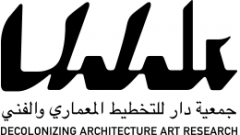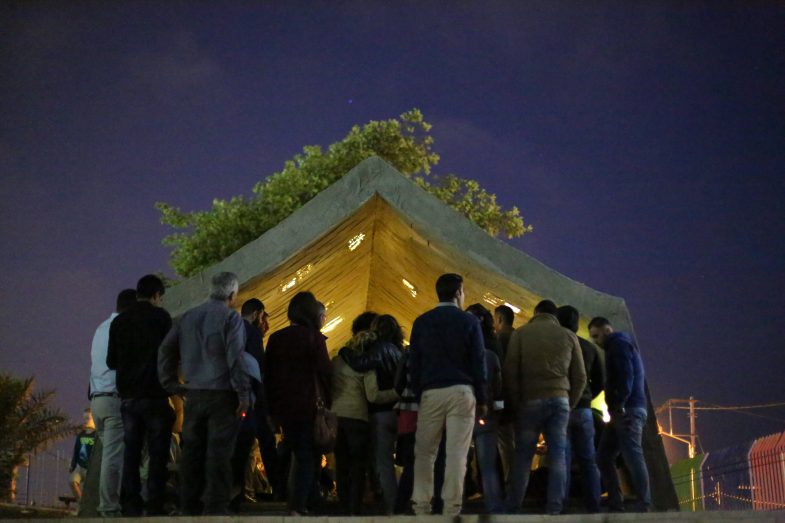The deadline for applications is May 3 13:00. To apply for the course use the online application form.
The course is intended for those with studies or experiences in architecture, art, urban research, postcolonial theory or activism who are interested in the ideological, social and political dimensions of Architecture. The course welcomes applicants with diverse cultural backgrounds committed to develop an artistic and architectural practice that is both theoretically and practically engaged in the struggle for justice and equality. The course is build on the work developed at DAAR and Campus in Camps.
Course Content
After the Second World War decolonization emerged as a powerful cultural and political process to liberate many countries from direct European colonial control and reshape power relations. It was a great moment of hope but also of great disillusion.
The course uses the term decolonization as a starting point to understand the globalized present and the associated contemporary conditions of exile, displacement and migration, revolts and struggles against oppression and domination with the aim to produce a convincing conceptual vocabulary and practice engaged in today’s struggles for justice and equality.
Architecture in the process of colonization and decolonization plays a crucial role in organizing spatial relations, expressing ideologies, and even when it is abandoned in ruin is mobilized as evidence for political and cultural claims. The analysis of the ways in which colonial architecture has been re-utilized is a new arena for understanding broader political and cultural issues around national identity and exile, sense of belonging or alienation, and social control or urban subversion. In this course architectural space is seen simultaneously as the product of the interaction of social and political transformations and as a privileged site for the analysis of these dynamics.
Drawing on the wealth of literature, recently discovered archive materials, and empirical research undertaken on the subject in the fields of geography, urban studies, politics, sociology and anthropology, the course’s methodological foundation remains anchored in the uniqueness of architectural analysis and spatial intervention.
The course is structured in two interrelated and parallel moments: 1) a period of research aimed at investigating the ways in which European colonial architecture has been re-used or destroyed in the process of decolonization and 2) activating collaboration with groups, associations, governmental and non governmental institutions for specific interventions in contemporary cities. Reference for the kind projects that the course aims to develop can be seen here www.decolonizing.ps
Course structure
The teaching philosophy of the course is based on the pedagogy developed by Campus in Camps, an experimental educational program established in Palestinian refugee camps www.campusincamps. In this approach, students are considered coauthors of meanings and bearers of knowledge. Therefore, the structure of the course is adapted to the urgencies and aspirations of the participants. At the same time the student-participants are asked to work under the direction of the course instructor who leads the group towards a collective project presented at the end of the year in an exhibition format and a publication. During the first semester lectures, research and site visits will help to build the case study for the Atlas of Decolonization and reading groups will help to structure a “collective dictionary”, a series of student-participant curated papers on key terms considered to be fundamental for the theoretical foundation of the architectural projects. The spring semester will emphasize the production and development of the project in the studio and its possible future realization. The course will revolve around three/four days every other week of intensive program of seminars, lectures, studios, mentorships, reading sessions, site visits, walks and convivial meals, spaced out by a week where participants independently develop work, research, write, read, draw, interview, and conduct site visits. The course is divided into two parts during one academic year: Decolonizing Architecture I, 30 credits (Autumn Semester); Decolonizing Architecture II, 30 credits (Spring Semester).

